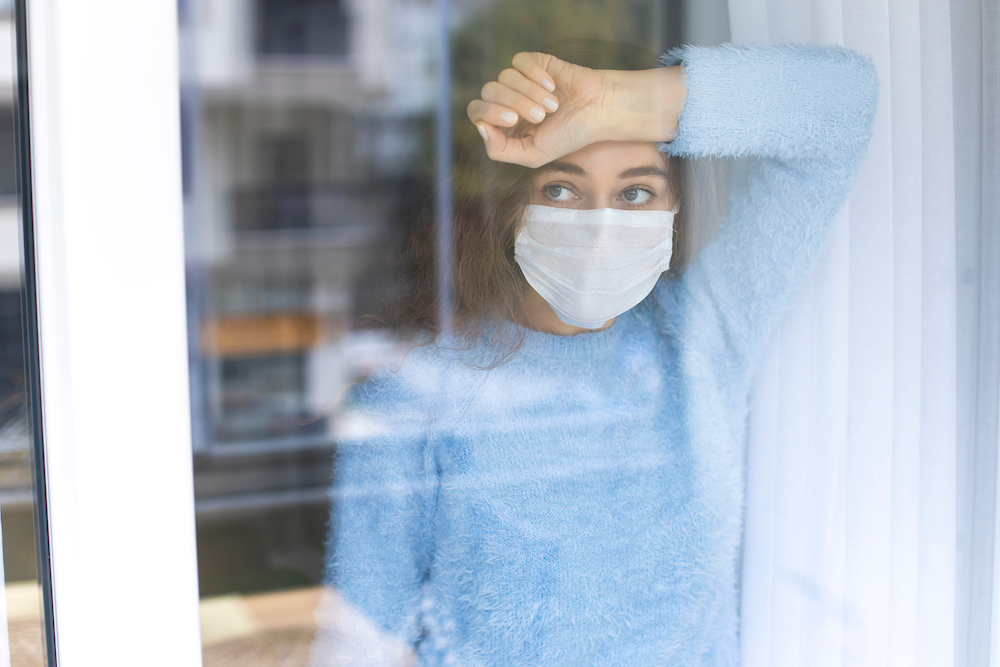69 Percent of Women Under 30 Say COVID-19 Has Impacted Their Mental Health, Kaiser Family Foundation Finds

A new Kaiser Family Foundation (KFF) survey has found that 69 percent of women under 30 feel that the COVID-19 pandemic has harmed their mental health. Since the start of the pandemic, many have shared how their mental state has been negatively impacted by the crisis. KFF has now found that women have been hit the hardest and are more likely to have psychological consequences.

The pandemic has been tough for nearly everyone. The world was forced to shift their everyday routines and adjust to a new normal. Stress and mental illness have been on the rise, with many fearing the virus and the uncertainty of the future.
Something I don’t think gets talked about enough is the toll the lockdowns and other aspects of Covid have had on mental health. #410ASpr21 https://t.co/fEan0h2oBS
— Clayton Cook (@Clayton_C_RN) April 15, 2021
The youth has been greatly impacted by the pandemic. Back in August, the CDC reported that young adults have experienced higher stress levels due to worries about school and future employment. Nearly all college students reported feeling stressed while more than half experienced extreme depression.
I will never forgive colleges on how they handled this pandemic and how they chose not to prioritize student’s mental health and well-being. I’m so damn tired and I need a break.
— Chy (@chynicole00) April 14, 2021
KFF’s new study aligns with these findings but emphasizes that the effects have been even greater on young women. Women aged 18 to 29 are more likely than any other group to see a decline in their mental health. The study also found that 55 percent of all women have seen a decline as compared to 39 percent of men. Black and Hispanic women were even more likely to experience mental health issues than their white counterparts.
I get the economy needs to be sorted out when we come out of this pandemic – but mental health provision needs way more focus. On a structural level. Everybody has suffered in some way. We need healing and support.
— nasra ayub🇸🇴 (@nasra_ayub) April 16, 2021
The loss of childcare is one of the contributing factors to the disparities between women and men. Women across the country have shared their struggles with homeschooling their children while also being working mothers. Nearly three in ten mothers also say they were unable to get the mental health services they needed.

Women were already considered more likely to suffer from higher levels of stress and mental illness than men before the pandemic. It is believed that the pay gap between genders could play a part.
Traveling to India during this pandemic made me realize how vulnerable we all are. Can’t even describe the mental health turmoil that people are going through.
— Subbu Allamaraju (@sallamar) April 16, 2021
While KFF’s findings aren’t shocking to many, they help open up important discussions surrounding women’s mental health. It’s also necessary to recognize the intersections between gender and race and the everyday struggles of women of color. Be sure to review the full KFF study and check out some key ways to help improve your mental health during the pandemic.

Writer | Tweet me @itsjadak




